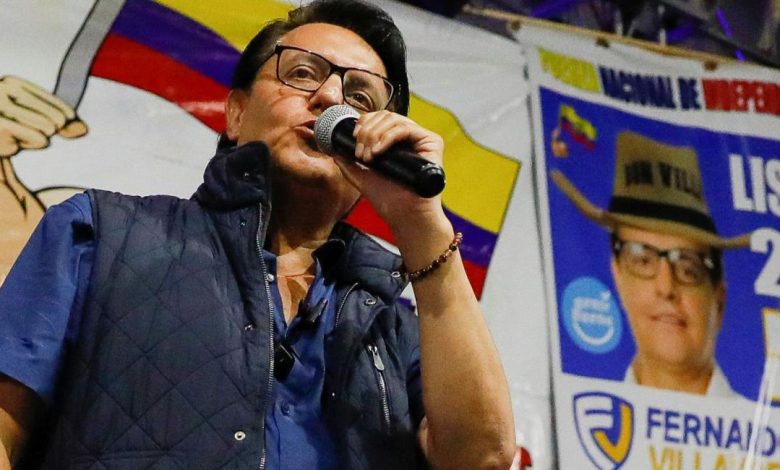
Ecuadorian presidential candidate, Fernando Villavicencio, has been shot and killed during a campaign event in the country’s capital, Quito.
Villavicencio was killed on Wednesday, August 9, and officials have suggested that “organised crime” may have been behind the assassination, RT reports.
The shooting occurred as the 59-year-old politician prepared to leave a political rally in Ecuador’s capital, with his campaign adviser Carlos Figueroa confirming his death to local media, noting that he had been shot in the head thrice.
President Guillermo Lasso commented on the shooting in a statement shared to social media, saying he was “outraged and shocked by the assassination of presidential candidate Fernando Villavicencio.”
He added that “organised crime has gone too far,” and said the murder would be solved.
Footage of the gruesome killing of Villavicencio has circulated online, purporting to show the moment of the shooting, with more than a dozen gunshots heard as security guards escorted him to a vehicle following the rally in Quito.
Figueroa said the candidate had no vital signs when he examined him immediately after the attack, and that he was declared dead at a nearby hospital.
According to Ecuador’s attorney general, an unnamed suspect in the shooting was arrested but later died of injuries sustained during a gun duel with law enforcement agencies. Nine others were wounded during the incident, including two officers and a candidate for local office.
Police described the shooting as an act of terrorism and promised to launch a probe.
Not long after the murder, Villavicencio’s party, Movimiento Construye, took to social media to say that “armed men” had attacked its campaign office in Quito but shared no further details.
In a separate statement, the party also demanded action from the government, insisting Villavicencio’s death must not go “unpunished.”
President Lasso noted that he called an urgent meeting of top security officials to discuss the incident on Wednesday night.
Villavicencio’s assassination came just ten days before Ecuador’s next presidential election, in which he was set to compete with seven other candidates.
